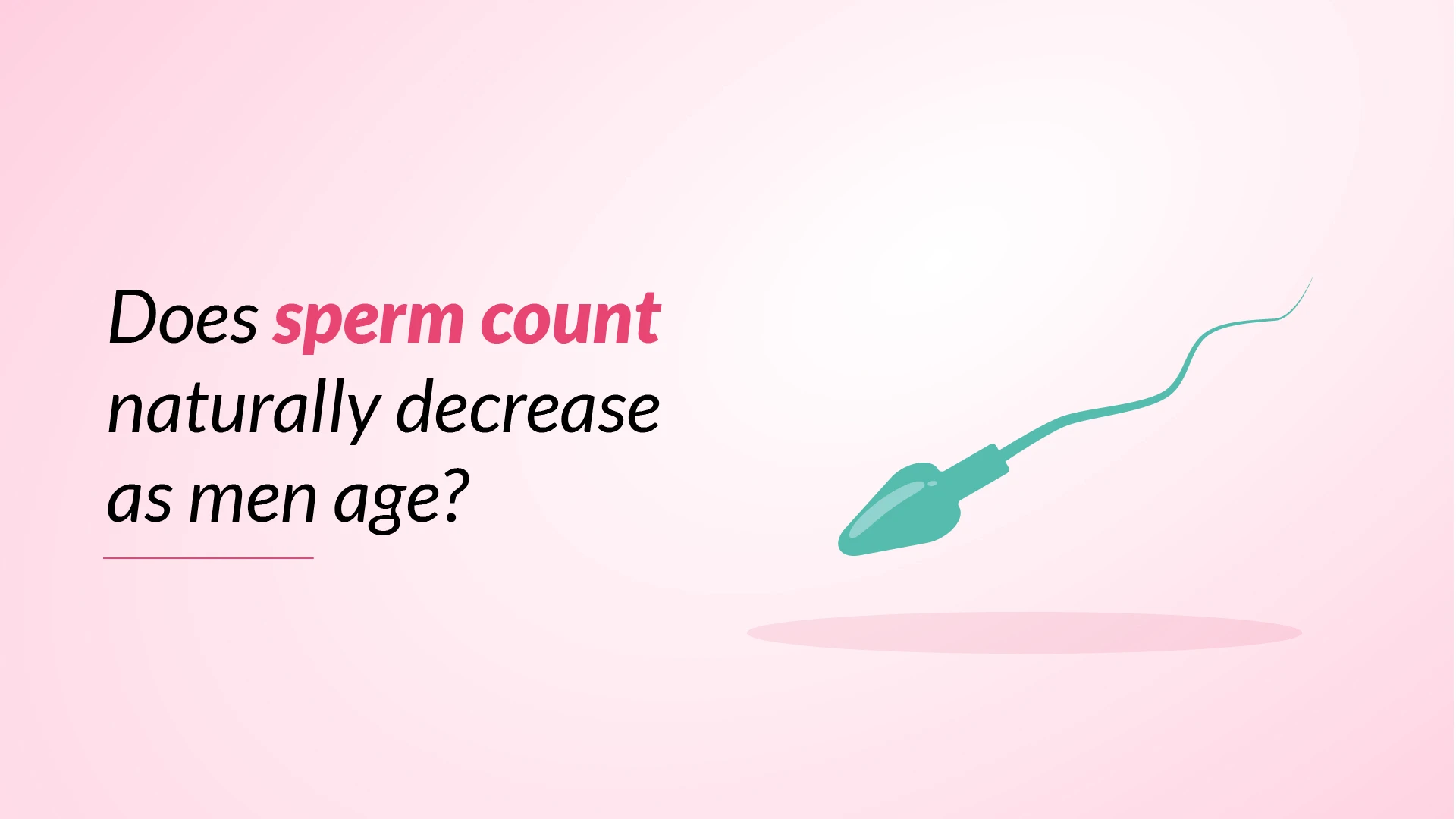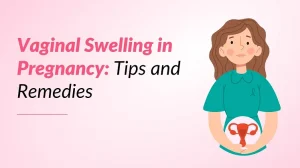As men age, various physiological changes occur, and one aspect that often raises concerns is the potential impact on reproductive health, specifically the normal sperm cell count. While it is a natural process, understanding how ageing affects sperm production and quality is crucial for couples planning to conceive or seeking to maintain their fertility.
Also read: The Impact Of Age On Fertility
What is Sperm Count, and Why is it Important for Fertility?
Sperm count or total spermatozoa count is the sum total of the sperm cells present in a semen sample. It is a key factor in assessing male fertility, as a higher sperm count improves the likelihood of successful fertilisation. A normal sperm count range is typically between 15 million & 200 million sperm cells per millilitre of semen.
In addition to the quantity, the quality of sperm cells is equally important. Factors such as sperm motility (the ability to move efficiently), morphology (the shape and structure of sperm cells), and DNA integrity play crucial roles in the fertilisation process. A balance of these factors contributes to optimal fertility potential.
How Age Affects Sperm Count
Gradual Decline in Sperm Production
As men age, their bodies undergo various physiological changes, including a gradual decline in sperm production. This decrease is primarily due to the natural ageing process of the male reproductive system, specifically the testes, where sperm cells are produced.
The testes contain seminiferous tubules responsible for spermatogenesis (the process of sperm cell production). As men age, these tubules gradually deteriorate, reducing the number of sperm cells produced.
Decreased Sperm Motility and Quality
Age-related changes can also affect the motility and overall quality of sperm cells. Sperm motility, or the capability of sperm cells to swim effectively, is essential for successful fertilisation. As men age, the motility of their sperm cells tends to decrease, making it more challenging for the sperm cells to reach and penetrate the egg.
Furthermore, the morphology (shape and structure) of sperm cells can be impacted by ageing. Sperm cells with abnormal shapes or structural defects may face difficulty reaching and fertilising the egg, potentially reducing fertility.
Increased Sperm DNA Fragmentation
DNA fragmentation refers to the breaks or damage in the genetic material of sperm cells. As men age, the risk of sperm DNA fragmentation increases due to various factors, such as oxidative stress, environmental exposures, and the accumulation of genetic mutations over time.
Sperm cells with fragmented DNA may have difficulty fertilising the egg or may lead to embryonic development issues, potentially increasing the risk of genetic abnormalities or miscarriage.
Hormonal Changes Affecting Sperm Production
Hormonal imbalances can also contribute to age-related changes in sperm production. As men age, the levels of hormones responsible for regulating spermatogenesis, such as testosterone and follicle-stimulating hormone (FSH), may fluctuate.
These hormonal alterations can disrupt the delicate balance required for optimal sperm production, leading to a decrease in sperm count and quality.
Accumulation of Age-related Health Issues
Certain age-related health conditions and chronic diseases can also impact sperm count and quality. Conditions like obesity, diabetes, cardiovascular diseases, and certain cancers or their treatments (e.g., chemotherapy or radiation therapy) can adversely affect spermatogenesis and overall reproductive health.
Other Age-related Factors Affecting Sperm Quality
Increased Risk of Genetic Mutations
As men age, the risk of genetic mutations in their sperm cells increases. These mutations can pile up over time due to various factors, including exposure to environmental chemicals, radiation, and the natural ageing process itself.
Genetic mutations in sperm cells can potentially lead to birth defects, developmental disorders, or other genetic abnormalities in offspring, making it more challenging to conceive a healthy child.
Health Conditions and Chronic Diseases
Certain health conditions and chronic diseases can have a significant impact on sperm quality, regardless of age. Conditions such as varicocele (enlarged veins in the scrotum), infections, autoimmune disorders, and hormonal imbalances can affect sperm production, motility, and overall quality.
Additionally, lifestyle factors like smoking, excessive alcohol consumption, and exposure to environmental toxins can further exacerbate the effects of these conditions on sperm health.
Decreased Seminal Fluid Production
As men age, the production of seminal fluid, which serves as a transport medium for sperm cells, may decrease. This reduction in seminal fluid volume can affect the motility and survival of sperm cells, potentially impacting fertility.
Lifestyle Factors and Their Cumulative Effects
Certain lifestyle factors (poor diet, sedentary lifestyle, stress & exposure to environmental toxins) can have a cumulative effect on sperm quality over time. These factors can contribute to oxidative stress, hormonal imbalances, and other physiological changes that may negatively impact sperm production and quality.
Impact of Decreased Sperm Count on Fertility
Reduced Chances of Conception
A decreased sperm count can significantly reduce a couple’s chances of conceiving naturally. With fewer sperm cells available, the likelihood of successful fertilisation decreases, making it more challenging to achieve pregnancy.
Increased Risk of Genetic Abnormalities
As men age, the risk of genetic abnormalities in their sperm cells increases, which can lead to a higher risk of developmental disorders or other genetic conditions in their children. This risk is further compounded by factors such as sperm DNA fragmentation and the accumulation of genetic mutations over time.
Need for Assisted Reproductive Technologies
Couples struggling with age-related fertility issues may need to explore assisted reproductive technologies (ART) to increase their chances of conceiving. These techniques can help overcome some challenges associated with decreased sperm count and quality.
Emotional and Psychological Impact
The inability to conceive can take an emotional and psychological toll on couples, leading to feelings of stress, anxiety, and frustration. It is essential to seek support and counselling if needed, as the emotional impact of fertility issues can be significant.
Also read: How IVF Have Brought Joy to Grieving Parents
Tips for Maintaining Sperm Health as You Age
While age-related changes in sperm count and quality are natural, there are steps men can take to help maintain their reproductive health as they grow older, including:
Adopt a Healthy Diet and Lifestyle
A balanced diet enriched in nutrients like antioxidants, zinc, and vitamin C can support sperm health. Additionally, maintaining a healthy weight, avoiding excessive alcohol consumption, and quitting smoking can positively impact sperm quality.
Engage in Regular Physical Exercise
Regular exercise not only makes you healthy but also maintains healthy sperm production and quality. Moderate physical activity can improve blood flow, reduce oxidative stress, and regulate hormonal levels, which can benefit sperm health.
Avoid Harmful Habits
Exposure to environmental toxins, excessive heat (e.g., from saunas or hot tubs), and certain medications can negatively impact sperm production and quality. It is essential to identify and minimise exposure to these potential hazards.
Manage Stress Effectively
Long-term stress can disrupt hormonal balance and contribute to oxidative stress, both of which can affect sperm health. Incorporating stress management techniques, such as breathing exercises, meditation, yoga, or counselling, can help mitigate the adverse effects of stress on reproductive health.
Schedule Regular Health Checkups
Regular health checkups can identify potential issues that may impact sperm health. These may include screening for underlying systemic conditions and monitoring hormone levels. Early detection & treatment can help prevent or mitigate age-related declines in sperm count and quality.
Find Hope and Solutions for Male Infertility — Explore Our Comprehensive Services
IVF Treatment
IUI Treatment
ICSI Treatment
PICSI Treatment
Fertility Preservation Service
Blastocyst Culture & Transfer Treatment
Conclusion
Age-related changes in sperm count and quality are natural and expected. However, understanding the factors contributing to these changes can empower men to take proactive steps to maintain their reproductive health. By managing stress, adopting a healthy lifestyle, and seeking medical guidance when needed, men can increase their chances of preserving their fertility potential as they age.





























